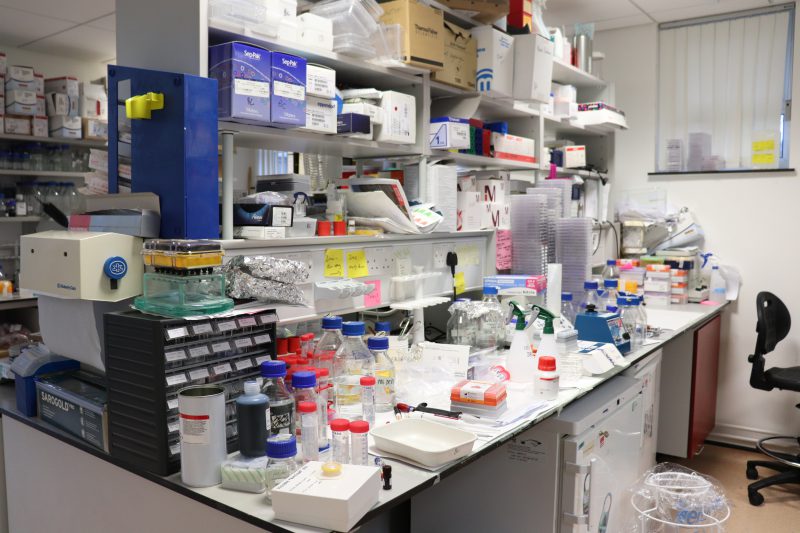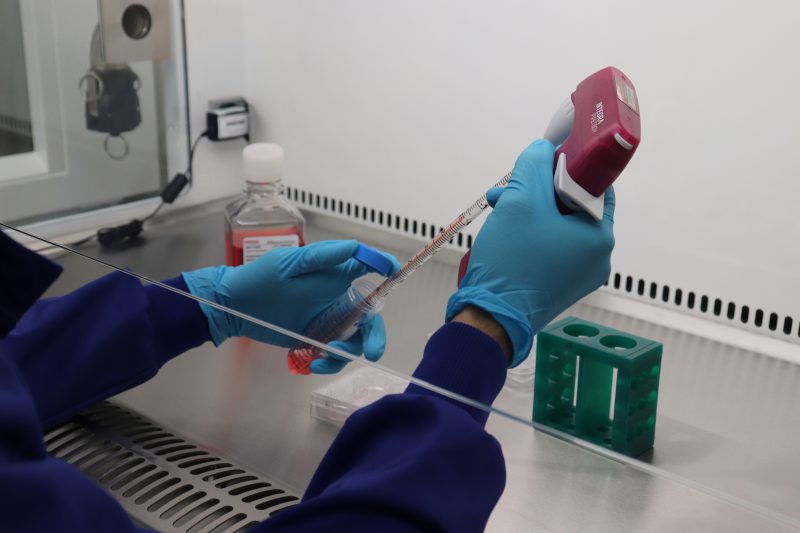- Posted: 08 April 2020
- Tagged: Research Updates
Our Research Strategy: One Year On
In March 2019, we launched our research strategy which set out our approach to achieving our ambition of becoming a world centre of excellence for prostate cancer research. One year on, our Head of Research and Communications, Dr Naomi Elster, looks back at the incredible progress we have made in the last year.
A Wider Base
We are now funding significantly more research, and our portfolio is much more diverse- we now fund 11 projects across the country, compared to just four last year. In addition to projects investigating immunotherapy, stem cells, models, and PlexinB1; our funded projects now include machine learning approaches, drug discovery, a link to STAMPEDE, and radiotherapy. We have also just opened our next grant call, which will expand our base even further.
Our focus is on finding therapies for advanced disease. However, when developing our strategy, we recognised that important research is needed to develop classification systems that can be applied when treating both metastatic and non-metastatic disease. Two of the projects funded by our 2019 grant call, led by Dr Dan Brewer and Professor Gert Attard respectively, are strongly linked to classification.


Strong Relationships and Collaboration
We believe that collaboration and sharing ideas is essential for successful research so this was an important theme in our strategy. During our 2019 grant call, a key part of the selection process was based on the scientists’ approach to collaboration.
We also recognised that we have an important role to play in fostering collaboration. In January, we hosted our first ever ‘Meet the Scientists’ event. This provided researchers with a unique networking opportunity. We also hoped to launch a collaboration fund in 2020 which would help scientists to collaborate, and reduce the risk of separate scientists unknowingly working on the same thing. This has had to be put on hold due to the uncertainty caused by COVID-19, but we are looking into ways we can continue to foster collaboration between researchers, despite the current situation.
Cooperating with Other Organisations
We also wanted to collaborate with organisations who share our goals. We have signed an official partnership agreement with Tackle Prostate Cancer, and have joined collaborative, sector-wide groups such as the AMRC and NCRI.
Saving the NHS Money
One of the core principles set out in our research strategy was to encourage research that aims to reduce the cost of prostate cancer treatment in the long term, and questions were asked during our last grant selection process about how accessible a treatment resulting of each project would be. However, we have potential to improve in this area, including to expand on this if we broaden into funding qualitative research as a result of the grant call we have just launched.
Grant Selection
In our research strategy, we set out the three main criteria for grant selection: scientific merit as judged against our research strategy; collaboration with others; and intellectual innovation and when appropriate, the formulation of a path to translation. All three were implemented in the selection process during our 2019 grant call.
Patient relevance was also included. Our patient panel reviewed lay summaries of the applications and provided comments. One senior researcher said he had never received patient comments before, and he appreciated the opportunity and the perspective it gave him.
We are committed to ethically conducted research, a robust but rapid process of scientific peer review and an open access philosophy. Our grant call was fully AMRC compliant and you can see what the scientists who went through the process thought of it – and of us – in this short video below.
Funding of Young Researchers
As an organisation, we appreciate how difficult in can be, especially for those in the early stages of their career, to gather enough preliminary data required for larger grants. To tackle this, we awarded three pilot awards, two of which went to young researchers. We have also provided our researchers with a networking opportunity, and are planning and budgeting to offer training.
We also recognise the importance of adjusting our strategy to improve impact as we gather evidence on which areas need more funding. We are actively analysing the whole sector to identify where the greatest need is, and have already gained valuable insights into potential knowledge and funding gaps – for example, through the survey we ran last winter – and will be able to share these soon.
““I very much appreciate your understanding of how difficult it is, especially for early career researchers like me, to gather sufficient preliminary data for such big grant applications."
Dr Jorge de la Rosa
Recipient of a 2019 PCR Pilot Award
The Future
We are very proud of how far we have come in just a year: increasing and broadening the research projects that we fund; putting collaboration at the heart of our organisation; and improving and implementing the key processes that underpin our work as a research charity.


